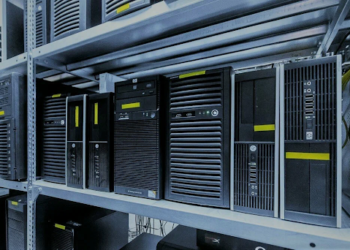Introduction
As the utility sector continues to evolve with advancements in technology, the importance of robust cybersecurity measures has become paramount. Utilities manage critical infrastructure that is essential for daily operations and public safety, making them prime targets for cyberattacks. To mitigate these risks, organizations must adopt comprehensive cybersecurity strategies. This article explores how SequelNet helps utilities avoid cybersecurity risks, with a particular focus on the benefits of commercial VPN solutions.
Understanding Cybersecurity Risks in Utilities
Utilities face a variety of cybersecurity threats, including:
1. Ransomware Attacks
Ransomware attacks have become increasingly common, where cybercriminals encrypt critical data and demand payment for its release. Utilities are particularly vulnerable due to the essential nature of their services.
2. Data Breaches
Utilities handle sensitive customer information and operational data. A data breach can lead to significant financial losses, regulatory penalties, and damage to reputation.
3. Insider Threats
Employees or contractors with access to sensitive systems can pose a significant risk, whether intentionally or inadvertently. Insider threats can lead to data leaks or system vulnerabilities.
4. IoT Vulnerabilities
As utilities increasingly adopt Internet of Things (IoT) technology for smart grids and remote monitoring, the attack surface expands. Insecure IoT devices can serve as entry points for cyberattacks.
How SequelNet Addresses Cybersecurity Risks
SequelNet offers a range of IT solutions specifically designed to enhance cybersecurity in utility organizations. Here’s how:
1. Implementing Commercial VPN Solutions
One of the most effective ways to bolster security in utilities is through the use of commercial VPN solutions. Here are the key benefits:
- Secure Remote Access: Commercial VPNs allow employees to securely access the company’s network from remote locations. This is crucial for utility workers who need to connect to central systems while on-site or working from home.
- Data Encryption: VPNs encrypt data transmitted over the internet, ensuring that sensitive information remains protected from interception by cybercriminals. This level of protection is vital when handling customer data and operational details.
- Access Control: Many commercial VPN solutions come with robust access control features. This allows utility companies to manage who can access sensitive systems and data, reducing the risk of insider threats.
2. Conducting Regular Security Audits
SequelNet assists utilities in conducting comprehensive security audits to identify vulnerabilities within their systems. Regular audits help organizations:
- Identify weak points in their cybersecurity posture.
- Ensure compliance with industry regulations.
- Develop strategies to address identified vulnerabilities.
3. Employee Training and Awareness error is often a significant factor in cybersecurity breaches. SequelNet provides training programs to educate utility employees about best practices for cybersecurity, including:
- Recognizing phishing attempts and suspicious activities.
- Properly handling sensitive data.
- Understanding the importance of secure passwords and access controls.
4. Enhancing Incident Response Capabilities
In the event of a cyber incident, a swift response is crucial. SequelNet helps utilities develop incident response plans that include:
- Procedures for detecting and responding to breaches.
- Communication protocols to inform stakeholders and customers.
- Recovery plans to restore systems and data quickly.
5. Integrating Advanced Security Technologies
SequelNet advocates for the use of advanced security technologies to protect utility infrastructures, including:
- Firewalls and Intrusion Detection Systems (IDS): These systems monitor network traffic for suspicious activities and can thwart potential attacks before they cause harm.
- Endpoint Security Solutions: Protect employee devices from malware and other threats, ensuring that all access points to the utility’s network are secure.
The Results of Enhanced Cybersecurity
By implementing robust cybersecurity measures with SequelNet, utilities can expect several positive outcomes:
1. Reduced Risk of Cyberattacks
With enhanced security measures and commercial VPN solutions in place, utilities can significantly lower their risk of cyberattacks. This proactive approach helps protect critical infrastructure and sensitive data.
2. Improved Compliance
Complying with industry regulations related to data protection and cybersecurity is crucial for utilities. SequelNet’s comprehensive solutions help organizations meet these requirements, avoiding potential fines and penalties.
3. Strengthened Customer Trust
By prioritizing cybersecurity, utilities can build trust with their customers. Assuring clients that their data is secure enhances the utility’s reputation and fosters long-term relationships.
4. Increased Operational Resilience
With a robust cybersecurity framework in place, utilities can operate more confidently, knowing that they are prepared to handle potential threats and minimize disruptions.
Conclusion
In an era where cyber threats are increasingly sophisticated, utilities must prioritize cybersecurity to protect their operations and customer data. SequelNet offers tailored solutions, including commercial VPN solutions, to help utility organizations mitigate risks effectively. By implementing these strategies, utilities can enhance their cybersecurity posture, ensuring safe and reliable service delivery.
For utilities looking to strengthen their cybersecurity efforts, SequelNet provides the expertise and solutions necessary to thrive in a challenging landscape. To learn more about how we can support your organization, visit SequelNet’s website.





